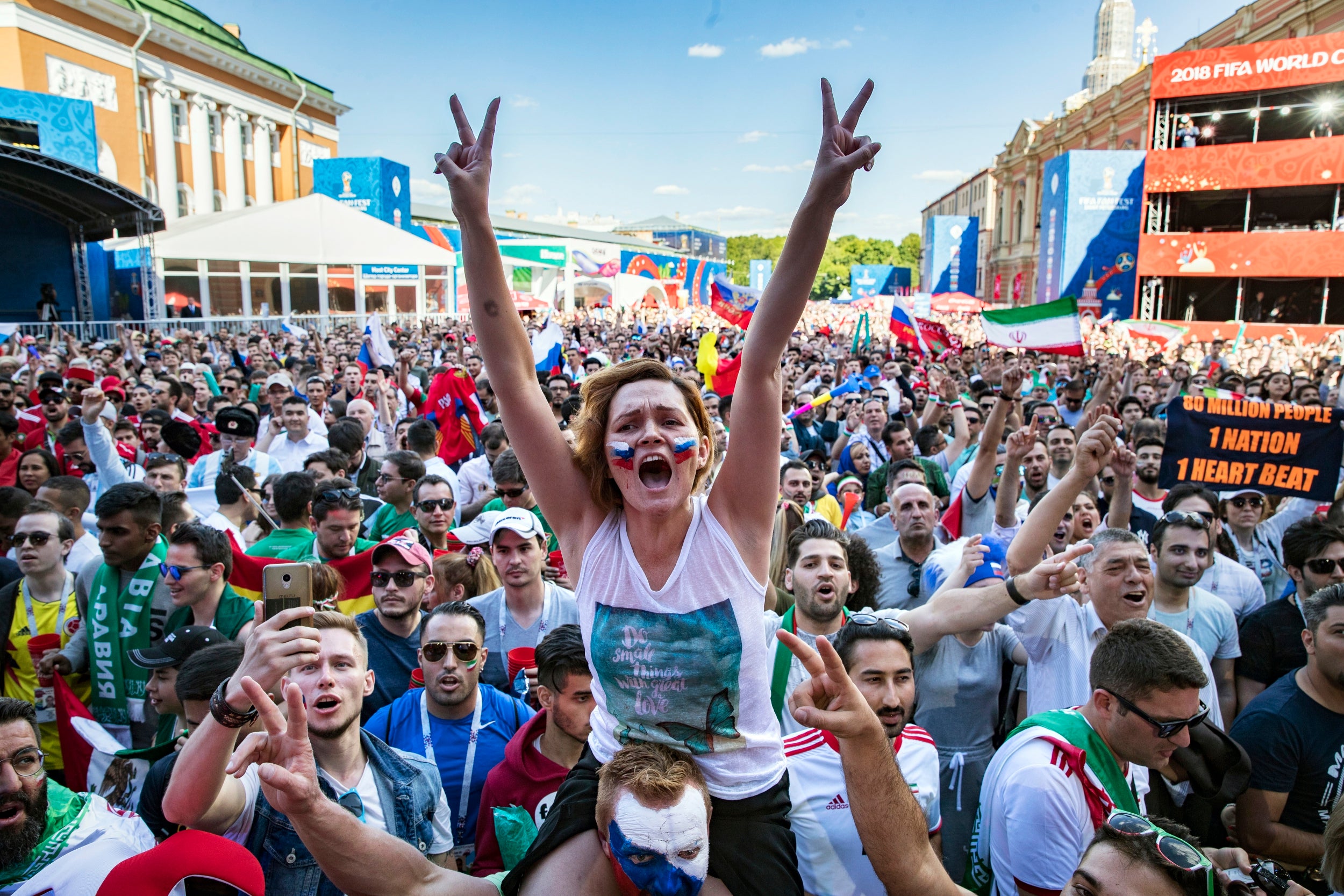I'm gay, I work in football and I'm tired of being told 'not to be political' about the World Cup
Sometimes your identity precludes you from turning a blind eye and saying, ‘What a shame but YAY FOOTBALL!’

Your support helps us to tell the story
From reproductive rights to climate change to Big Tech, The Independent is on the ground when the story is developing. Whether it's investigating the financials of Elon Musk's pro-Trump PAC or producing our latest documentary, 'The A Word', which shines a light on the American women fighting for reproductive rights, we know how important it is to parse out the facts from the messaging.
At such a critical moment in US history, we need reporters on the ground. Your donation allows us to keep sending journalists to speak to both sides of the story.
The Independent is trusted by Americans across the entire political spectrum. And unlike many other quality news outlets, we choose not to lock Americans out of our reporting and analysis with paywalls. We believe quality journalism should be available to everyone, paid for by those who can afford it.
Your support makes all the difference.Yesterday marked the beginning of the Fifa World Cup 2018, hosted this year by the Russian Federation – a country with a particularly poor record when it comes to protecting the rights of its LGBT citizens. On that same day, campaigner Peter Tatchell was arrested for staging a one-man protest near Red Square, holding a banner reading “Putin fails to act against Chechnya torture of gay people” and it was reported that a French national suffered head and brain injuries during a homophobic attack.
Growing up I can’t say that I felt very engaged by football, although the sometimes god-like athletes themselves did admittedly capture my attention. I didn’t know much about the sport, but what I did know and what I had heard suggested that it had at its core a visceral macho culture where there wasn’t room for a guy like me.
My indifference to football continued into my early twenties, until by chance I happened to begin working with a football analysis company. Somewhat tentatively, I began to revisit my preconceptions around the game, and have since come to quite enjoy it. I’m privileged to work alongside people who are incredibly passionate and knowledgeable about the sport, and who have helped me come to view it through the fascinating lens of statistics and mathematics.
Through my writing, too, I have come to know many people who are working passionately and tirelessly to make the sport that they love more inclusive – to make it “everyone’s game”, as the Rainbow Laces campaign put it. I can’t help but feel a bit gutted that as a result of the decision to host the World Cup in Russia this year, not to mention Qatar in 2022, the next time I will really feel comfortable actually attending a World Cup in person will be in 2026, when I’m in my late thirties.
When the decision to host the World Cup in Russia was announced, there was quite a lot of talk of a boycott, and there were even some quite high-profile campaigns to ban Russia from hosting. In the end, though, the tournament did come to Russia, and yesterday was welcomed in with jubilation and a somewhat weathered Robbie Williams.
At this point it would be easy to think that the battle is over, even lost. Fifa has seemingly turned a blind eye to state-sponsored homophobia, not only in Russia but Qatar, in a surprisingly backwards step for football in the past few years. A little while back now it was reported that the Gulf Cooperation Council (an alliance of nations in the Middle East) was considering a proposal that involved a system to help “detect gays” in order to bar them entry to its member states. When you talk to people about this, their response is essentially, “Oh that’s a shame... but YAY FOOTBALL!” which leaves me feeling hollow.
Fifa’s decision to host the World Cup in Russia does, on the other hand, maybe offer us opportunities. The greatest show on Earth brings with it the greatest media circus on Earth. All eyes are on Russia, and in the glare of that media spotlight, perhaps there is scope for a degree of international pressure to be applied.
Taking that spotlight are the brave LGBT Russians like Aleksandr Agapov, who heads the Russian LGBT Sport Federation, and who unfurled his rainbow flag in the stadium just as Putin was giving his opening address. Some LGBT fans too are choosing to go against the advice and be “visible”. One group of supporters from the UK-based Pride in Football are travelling to Russia to fly a rainbow flag at every England game, reportedly with the backing of the FA. Any and all efforts like this are to me quite profound acts of bravery, challenging what is an openly hostile regime, and are undoubtedly having an impact – at least in the short term – on the visibility of LGBT people in Russia.
It remains to be seen how much, if any, real lasting change can be brought about by what is a temporary tournament. When the cameras leave, when the fans go home, will the lives of LGBT Russians have changed? Will the plight of the gay people in Chechen concentration camps be any different? Part of me really doubts it. They say that “love wins”, but if you’re gay and you live in Russia, that’s likely to be little more than a hopeful slogan.
Join our commenting forum
Join thought-provoking conversations, follow other Independent readers and see their replies
Comments